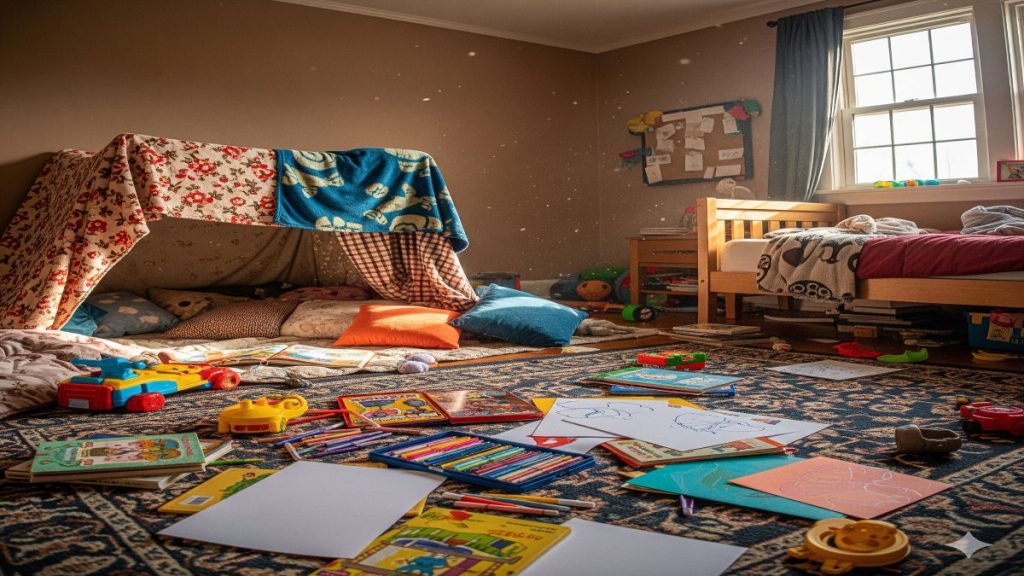If you’re constantly battling with your child over their chaotic bedroom, it might be time to take a step back and reconsider your approach. Whilst a tidy room certainly has its merits, research suggests that a certain level of mess could actually benefit your child’s development in surprising ways.
The Psychology Behind the Chaos
Contrary to popular belief, a messy room doesn’t necessarily indicate laziness or disrespect. Child psychologists have found that messy spaces can reflect a child’s natural creativity and developing independence. When children organise their belongings in ways that make sense to them, even if it appears chaotic to adults, they’re exercising cognitive skills and establishing personal autonomy.
Experts suggest that children’s brains are wired differently from adults, and what looks like mess to us might be a perfectly logical system to them. This is particularly relevant for children you may foster with an agency like www.thefca.co.uk, who may need additional time and space to establish their own sense of control and belonging in their new environment.
Creativity Flourishes in Controlled Chaos
Understanding how mess impacts creativity can help parents appreciate their child’s seemingly disorganised space.
The Creative Process Needs Freedom
Children often work best when they can spread out materials, leave projects half-finished, and return to them later. A pristine room might actually stifle this natural creative process. When children know they can leave their Lego castle or art project undisturbed, they’re more likely to engage in extended, imaginative play.
Problem-Solving Through Organisation
Interestingly, children living in slightly messy environments often develop superior problem-solving skills. They learn to navigate their space, remember where items are located, and adapt to changing circumstances, which are all valuable life skills.
The Independence Factor
A child’s messy room can be a healthy expression of their growing independence and personal identity.
Developing Personal Responsibility
When parents constantly tidy their child’s room, they inadvertently rob them of learning opportunities. Allowing children to manage their own spacewithin reasonable boundariesteaches them about consequences and personal responsibility. They begin to understand that if they can’t find their favourite toy, it’s because they haven’t put it in an accessible place.
Building Confidence and Ownership
Having control over their personal space helps children develop confidence and a sense of ownership. This is especially crucial for foster children, who may have experienced instability and lack of control in their previous living situations.
Finding the Right Balance
Whilst some mess can be beneficial, there’s clearly a line between healthy disorder and problematic chaos. The key is establishing boundaries that prioritise safety and basic hygiene whilst allowing for personal expression. Consider focusing on keeping pathways clear, ensuring dirty clothes make it to the washing basket, and maintaining cleanliness in shared family spaces.
Rather than viewing your child’s messy room as a battle to be won, try seeing it as a window into their developing personality. With patience and understanding, you can help them learn organisational skills whilst respecting their need for creative freedom and personal space. Sometimes, the best parenting approach is knowing when to close the bedroom door and choose your battles wisely.

